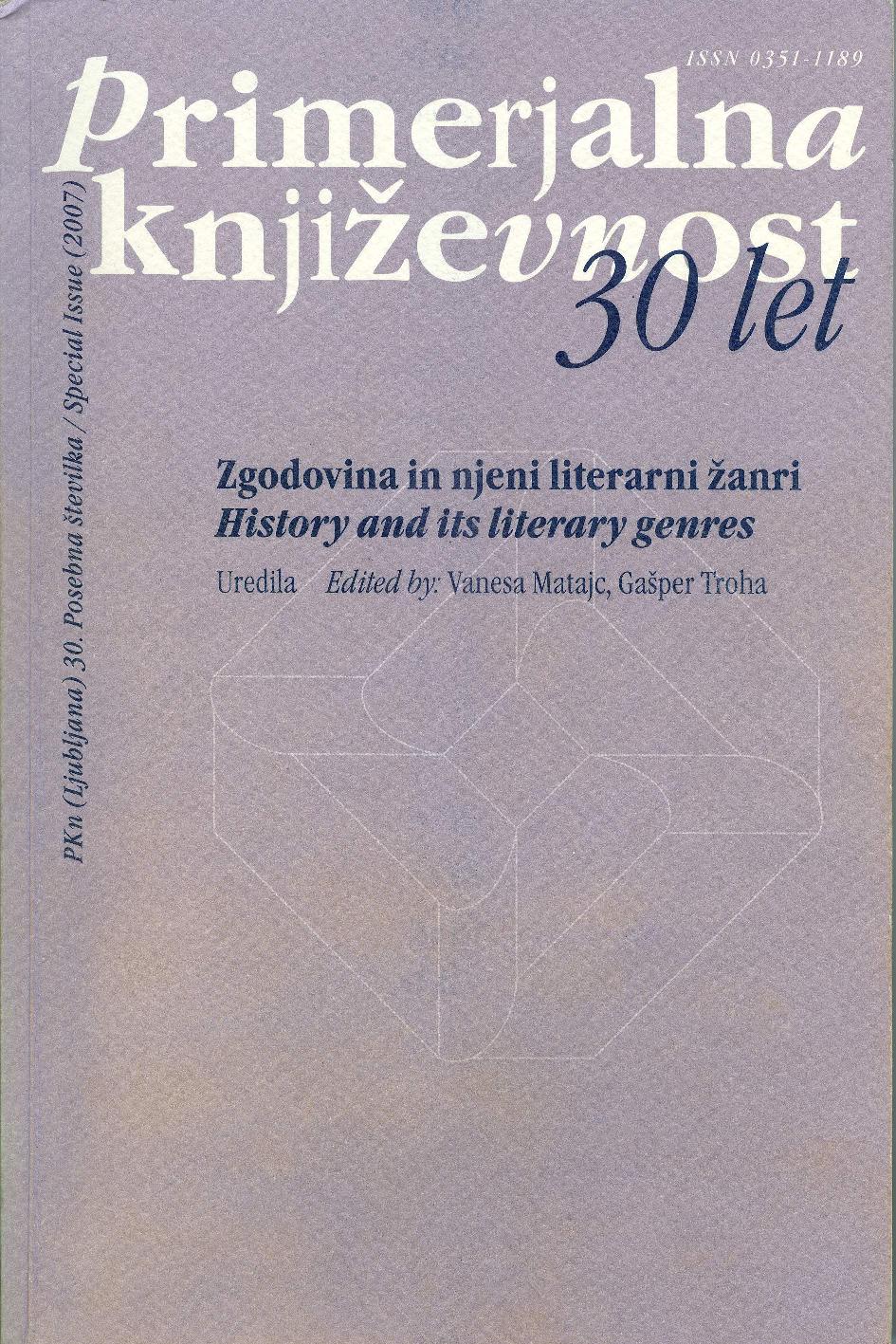Historical Drama and Its Social Role in Slovenia Under Communism
Keywords:
literature and ideology, sociology of literature, Slovene drama, 20th cent., historical drama, social role, communismAbstract
The aim of this paper is to present and investigate the special social role played by Slovene historical drama from the 1960s to the 1980s. Although historical drama is usually viewed as a means of creating national and ideological myths, in this case it represented a means of formulating social criticism during a period of extreme ideological control in the arts.References
Bibič, Polde. Izgon. Ljubljana: Nova revija, Slovenski gledališki muzej, 2003.
Hieng, Andrej. »The Return of Cortes.« On the Airwaves. Ur. Pavel Lužan in Goran Schmidt. Ljubljana: Slovene Writers’ Association and Association of the Slovene Literary Translators, 2006. 16-41.
– – –. Cortesova vrnitev. Maribor: Obzorja, 1969.
Inkret, Andrej. »Vroča pomlad 1964.« Oder 57. Ur. Žarko Petan in Tone Partljič. Ljubljana: Mestno gledališče ljubljansko, 1988. 139–188.
Jančar, Drago. Veliki briljantni valček. Ljubljana: Cankarjeva založba, 1985.
Kozak, Primož. Afera. Ljubljana: Državna založba Slovenije, 1992.
Kralj, Vladimir. Pogledi na dramo. Ljubljana: Cankarjeva založba, 1963.
Rožanc, Marjan. Vroča pomlad 1964. Topla greda. Ljubljana: Karantanija in Škuc-Forum, 1990.
Taufer, Veno. »Avantgardna in eksperimentalna gledališča.« Živo gledališče III. Ur. Dušan Tomše. Ljubljana: MGL, 1975.
Vidmar, Josip. Gledališke kritike. Ljubljana: Cankarjeva založba, 1968.
Žižek, Slavoj. Jezik, ideologija, Slovenci. Ljubljana: Delavska enotnost, 1987.


